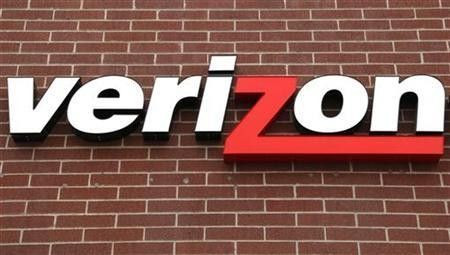Verizon Taking Heat Over Tax Payments

While Verizon is enjoying booming profits, some groups say the company isn't paying its fair share of taxes.
In a joint report released Tuesday by grassroots organization Citizens for Tax Justice and Good Jobs First, the groups noted that if Verizon had paid the standard 35 percent federal tax rate on its profits between 2008 and 2010, the company would have paid $11.4 billion in federal taxes (based on 33.4 billion in pre-tax U.S. operating income).
However, the report said the company received $12.3 billion in federal tax subsidies during that time, most of which is from accelerated tax write-offs of property, plant, and equipment that the federal corporate tax code provides. According to this calculation, Verizon's federal tax rate over this time was -2.9 percent.
We think that Verizon's behavior ...shows that this is a corporation that refuses to pay its fair share of taxes, Phillip Mattera, research director for Good Jobs First, said in conference call with Citizens for Tax Justice and the Communication Workers of America.
In 2010, Verizon reported a profit of $10.2 billion on revenue of $106.6 billion. The year before, the company earned $11.6 billion on revenue of $107.8 billion.
The report also noted that Verizon reduced its tax burden through transactions known as Reverse Morris Trusts. These transactions involve a parent company spinning off a subsidiary still owned by company shareholders. The company then merges with an external company and issues shares to the shareholders of the parent company. The Internal Revenue service allows this transfer of assets to take place tax free.
Verizon used the transaction when it sold assets to FairPoint Communications in 2008 and to Frontier Communication in 2010. The report estimated Verizon avoided over $1.5 billion in federal and state taxes with the move.
Verizon also received generous state and local subsidies as well, Mattera pointed out. For example, in a ten-year time frame, Verizon received $113 million to build call facilities in New Jersey.
But Mattera said many of the jobs provided were low-paying, with starting salaries hovering around the $25,000 range.
Verizon takes advantage of state and local government's desire to boost job creation, he said.
In order to rectify the situation, George Cole, senior director for legislation and policy for the CWA, said on the call that the federal government needs to close the Reverse Morris Trusts loophole, and that companies should have to pay an effective corporate minimum tax.
Verizon has repeatedly defended themself against criticism over its taxes. Spokesman Bob Varettoni told the International Business Times that the company obeys all tax laws. Furthermore, he said Verizon has paid more than $7.5 billion over the past five years in state and federal income taxes alone.
This is a rehash of the same inaccurate and politically motivated statements that union-orchestrated front groups like the CTJ have been making for some time, Varettoni said.
The fight over these taxes comes in the midst of recent tension between Verizon and its employees over worker contracts. In August, about 45,000 Verizon landline employees went on strike after the company requested that landline employees contribute a portion of their income to their health care premiums.
Verizon argued that the concessions from employees were necessary because of its dwindling landline business, which has been on a downward spiral since 2003 as people opt to use their mobile devices as their primary telephone. In 2010, the number of Verizon's landline subscribers fell 8 percent to 26 million customers.
Unions such as the CWA argued that Verizon's strengthening wireless business more than made up for the declining revenue in the landline division. While the wireline division only earned $768 million in 2010, the company earned $18.7 billion in the wireless division.
The employees ended their strike two weeks after it began, but are now working without a new contract.
© Copyright IBTimes 2024. All rights reserved.





















